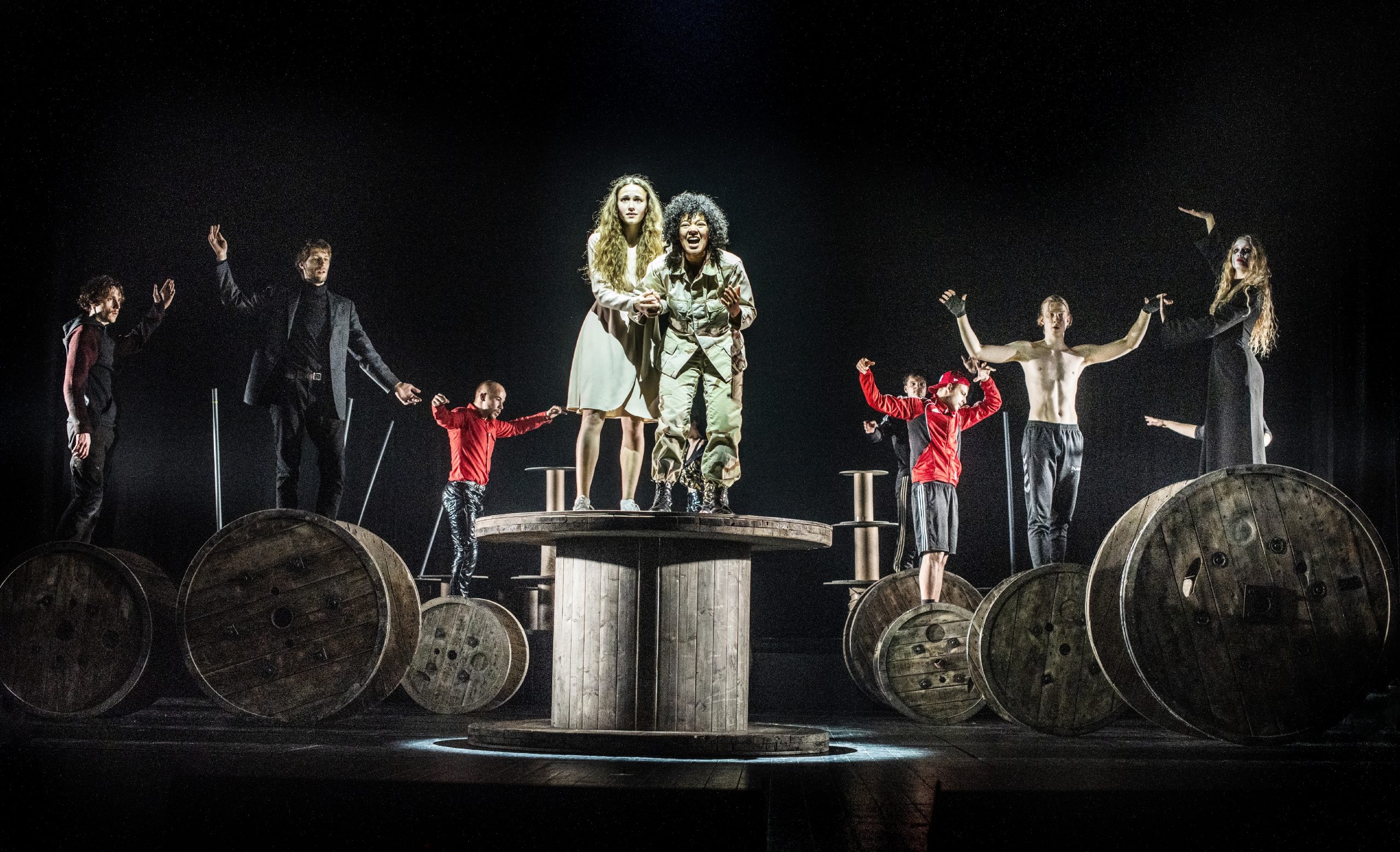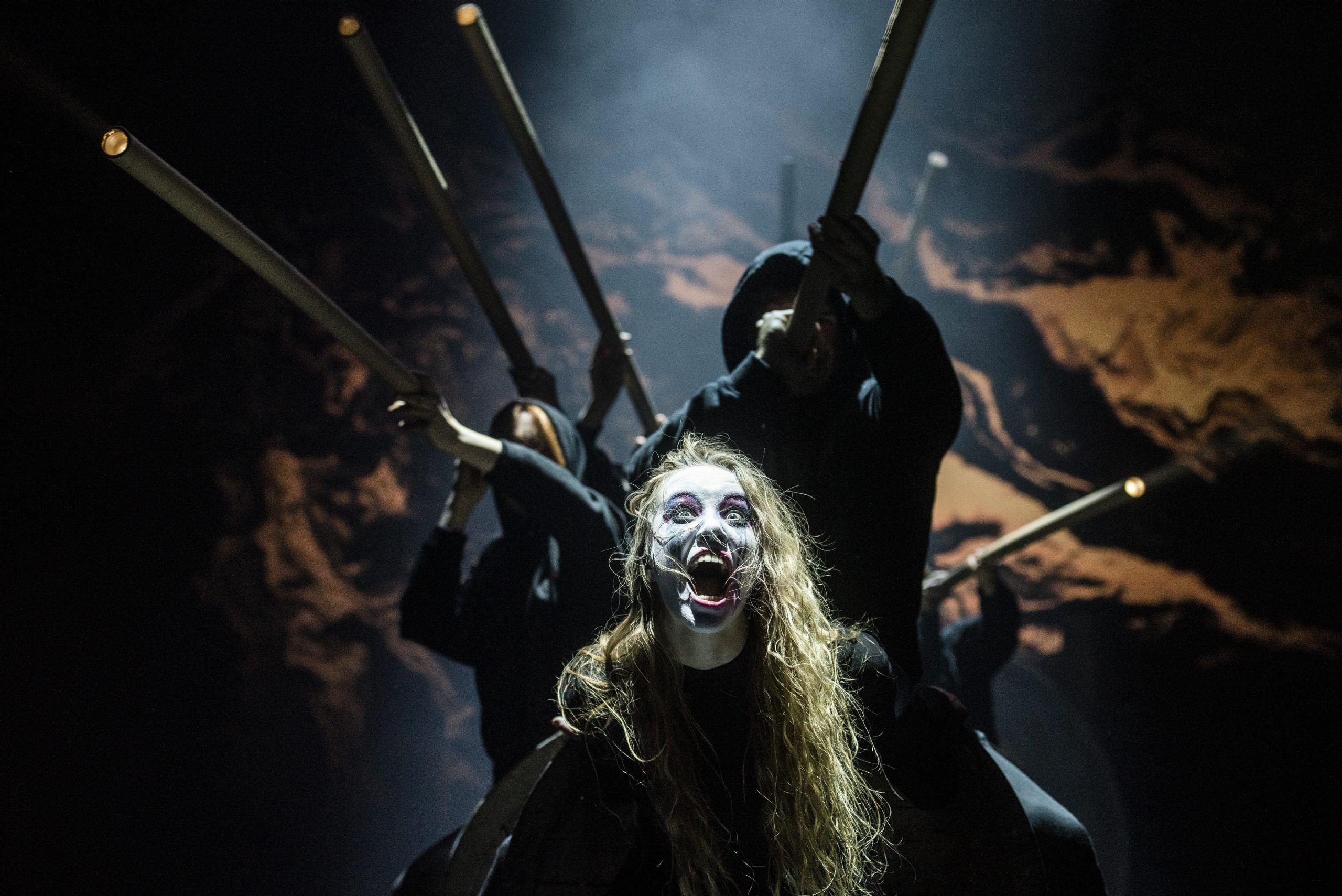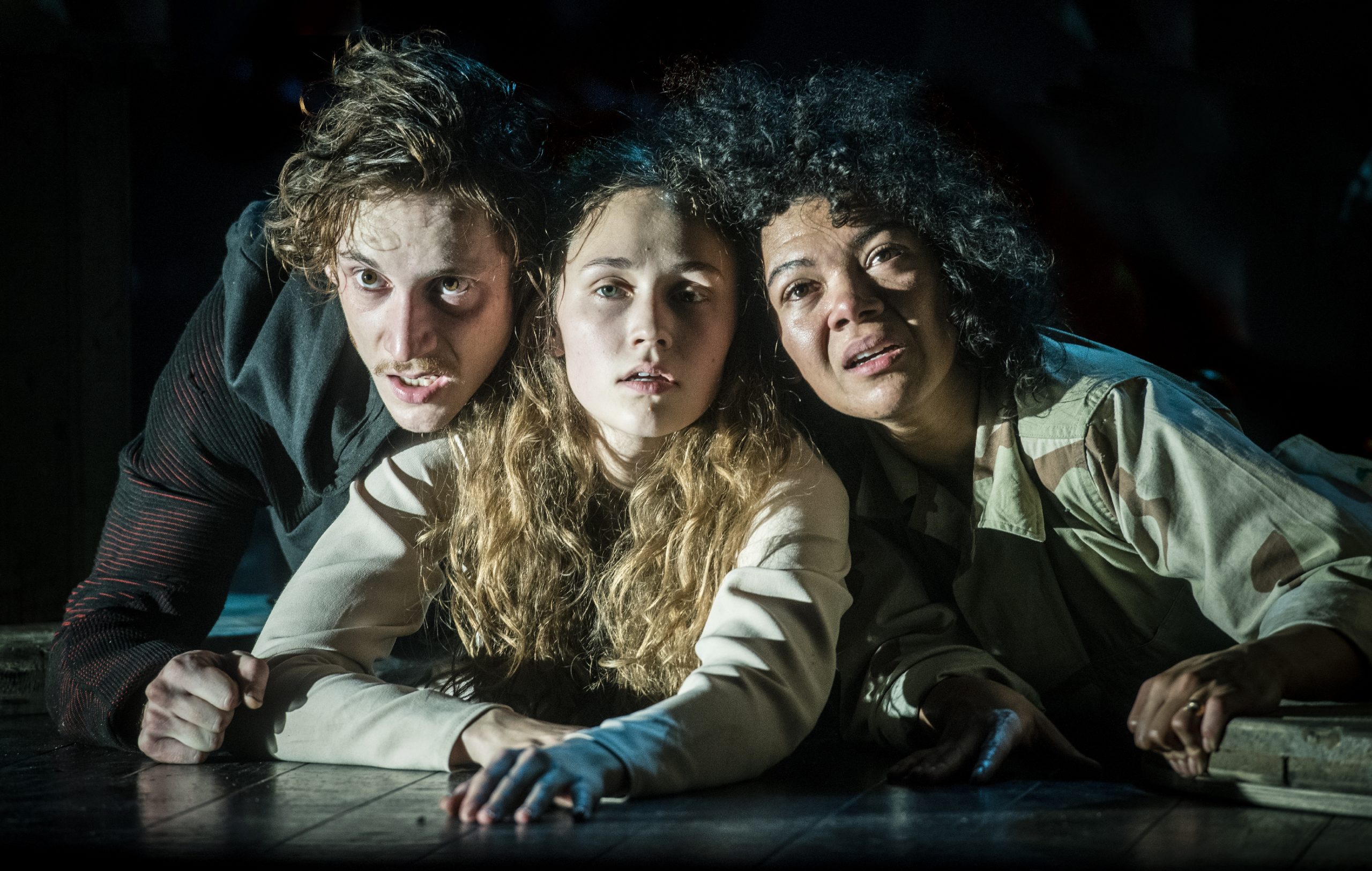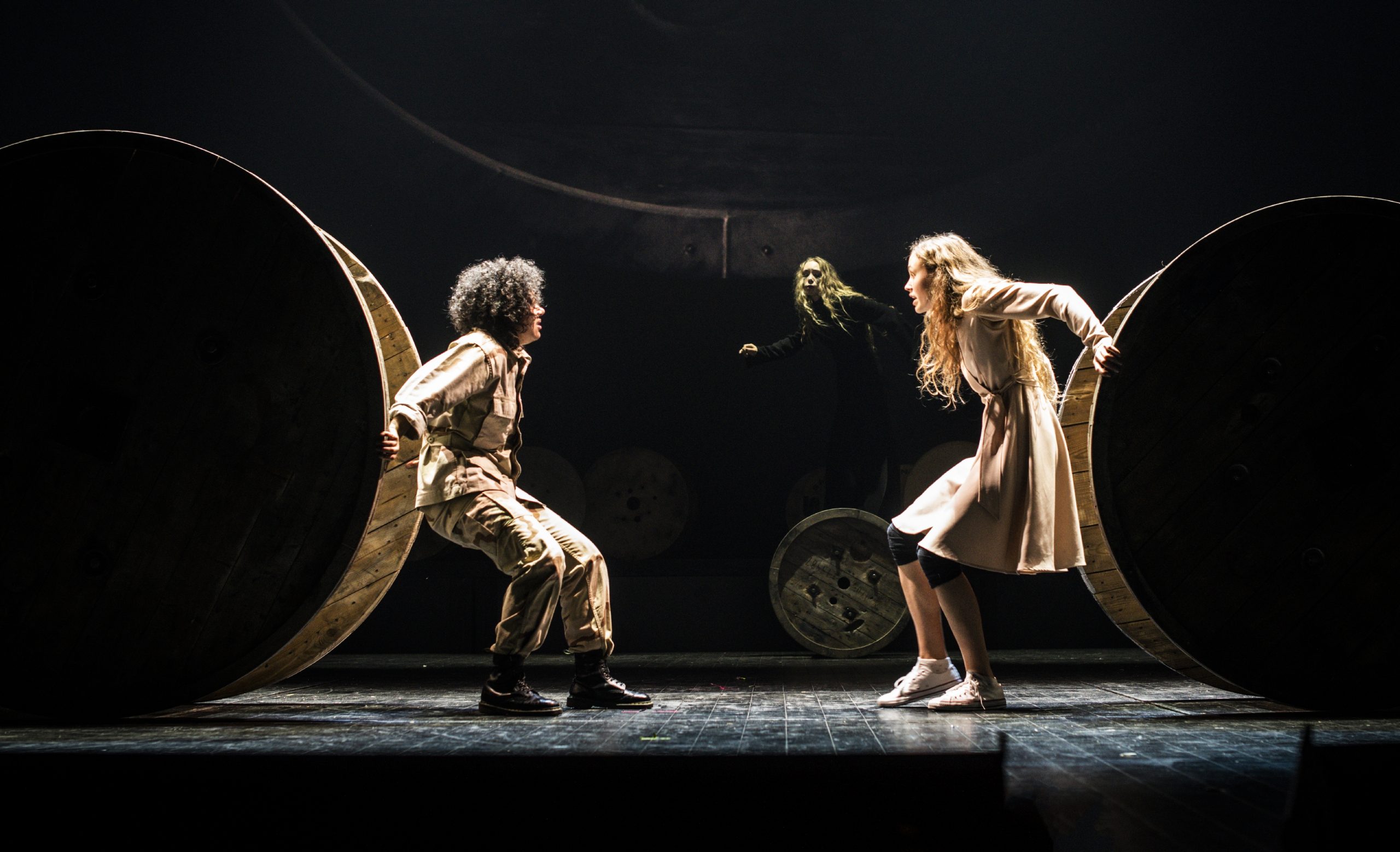In “Othello” Iago acts in a Machiavellian way by using all the traditional stereotypes for achieving his aims and winning his arguments. He infects Desdemonaʼs father with racism and forces Othello himself to doubt his honour of a military chief and a husband. He plays with the darkest emotions as the devilʼs influencer, utilizing the traditional definitions of the good. As the Facebook algorithm he seeks for our needs and fears. As he finds our Achilleʼs heel, he pushes it so hard that we become the black sheep fighting for his aims. We fear wars, hate each other and, most importantly, get jealous. It is the most despicable and most effective government – government of fear and envy. He forces Othello to return to the arborescent hierarchical army methods. Othello obeys him by turning against his love, against his true nature and perishes.
In those times, the union of Othello and Desdemona, discarding the racial differences, could be called non-traditional. Nowadays, we in Lithuania experience the collision of the traditional and non-traditional families, as well as the problems of genders. It is basically a collision of the traditional and the modern, which repeats itself in Europe since the Middle Ages, and its matrix is visible in Shakespeareʼs tragedies. This dilemma explains choosing the black woman to portray Othello. It allows us to feel the traditional limits, which Desdemona has crossed. On the other hand, if in the Shakespearean times it was normal for men to play women, today it should be normal for women to play men. By the way, in the traditional patriarchal society Deleuze sees man as molar and woman as molecular. According to him, creation is only possible on the molecular plane, only in becoming a woman and finally, in becoming imperceptible. It is especially visible in theatre. Acting itself is the art of re-embodiment. Here, sex, age or other restrictions do not matter.


OTHELLO
OKT/Vilnius City Theatre
Grand Hall
Duration 3.40 (with intermission)
Premiere 2021
Director Oskaras Koršunovas
Scenographers: Oskaras Koršunovas, Julija Skuratova
Costume designer Julija Skuratova
Lighting designer Eugenijus Sabaliauskas
Composer Antanas Jasenka
Choreographer Vesta Grabštaitė
Video artist Artis Dzērve
Guitar improvisation Džiugas Gvozdzinskas
Assistant Director Jokūbas Brazys
Cast:
Oneida Kunsunga-Vildžiūnienė, Digna Kulionytė, Saulius Ambrozaitis, Sofija Gedgaudaitė, Karolis Norvilas, Miglė Navasaitytė, Gerda Čiuraitė, Džiugas Gvozdzinskas, Aurelijus Pocius, Džiugas Grinys, Domantas Starkauskas
Premiere 2021
Director Oskaras Koršunovas
Scenographers: Oskaras Koršunovas, Julija Skuratova
Costume designer Julija Skuratova
Lighting designer Eugenijus Sabaliauskas
Composer Antanas Jasenka
Choreographer Vesta Grabštaitė
Video artist Artis Dzērve
Guitar improvisation Džiugas Gvozdzinskas
Assistant Director Jokūbas Brazys
Cast:
Oneida Kunsunga-Vildžiūnienė, Digna Kulionytė, Saulius Ambrozaitis, Sofija Gedgaudaitė, Karolis Norvilas, Miglė Navasaitytė, Gerda Čiuraitė, Džiugas Gvozdzinskas, Aurelijus Pocius, Džiugas Grinys, Domantas Starkauskas







 Back
Back 





